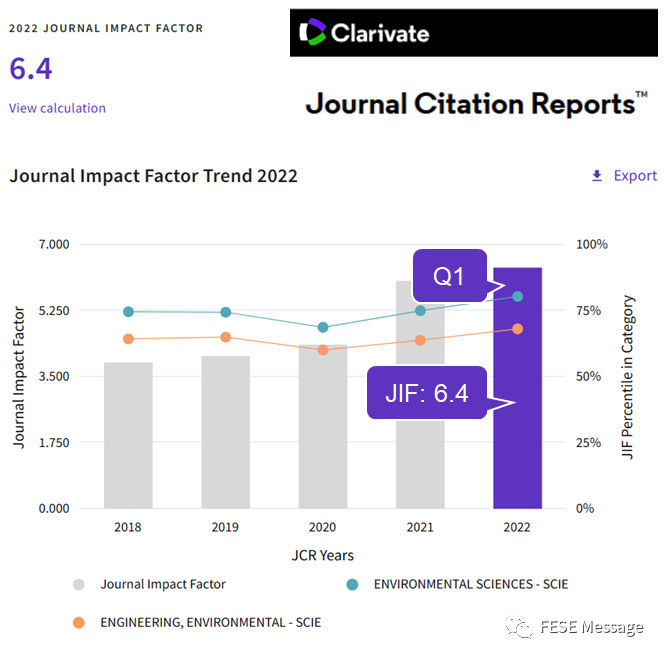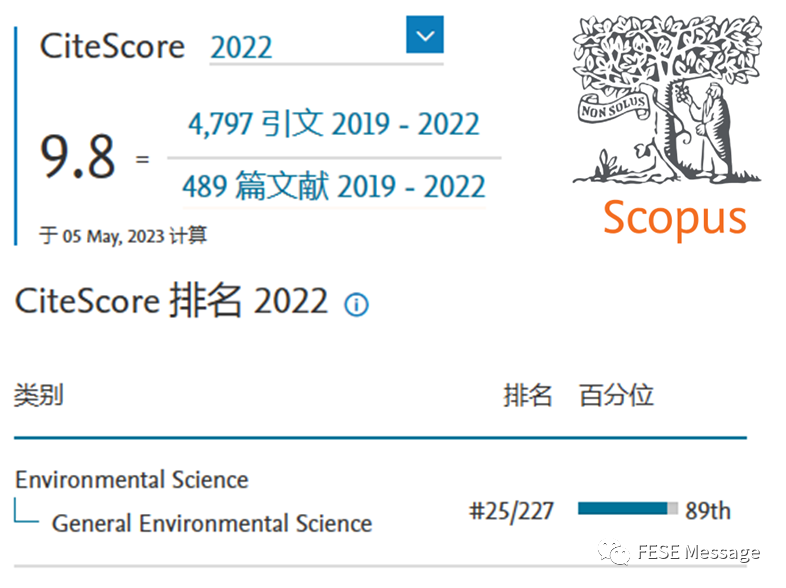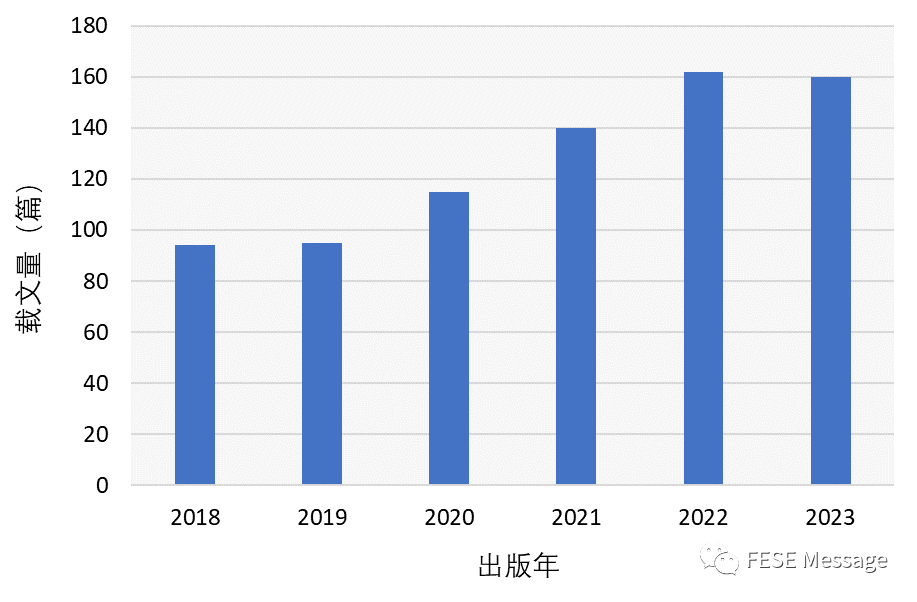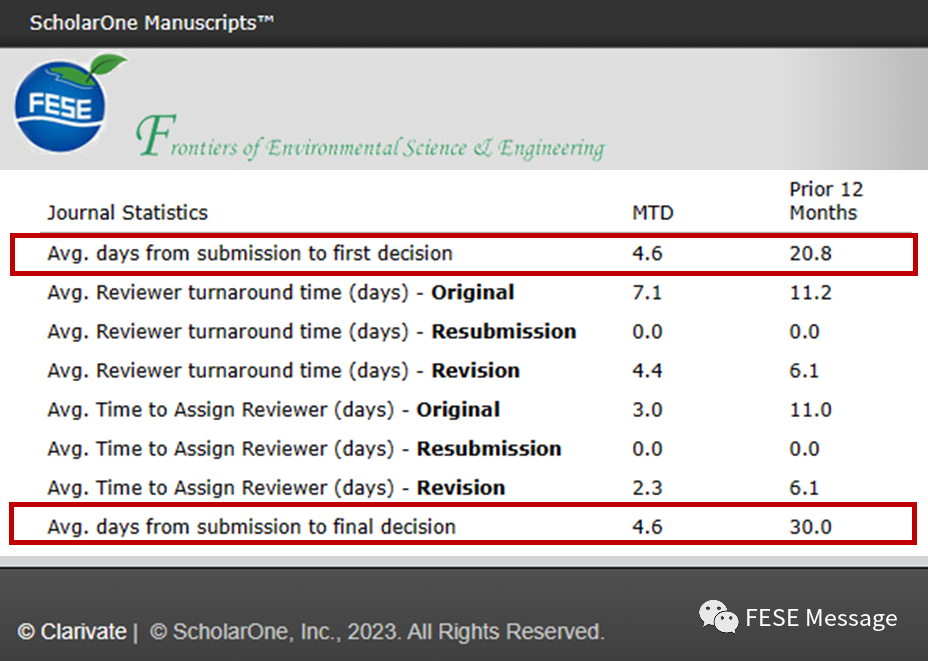In the latest Journal Citation Report™ 2022 by Clarivate, Frontiers of Environmental Science & Engineering (FESE), a key journal under China's Action Plan for Excellence in Scientific and Technical Journals and a journal series of the Chinese Academy of Engineering, has achieved a new impact factor of 6.4. This positions FESE at #18 out of 55 in Engineering-Environmental and #54 out of 274 in Environmental Sciences. Notably, FESE holds a JCR Q1 ranking.

In the recently unveiled CiteScore™ 2022 metrics by Elsevier, FESE journals have earned a citation score of 9.8, ranked #25 out of 227 in General Environmental Science.

In recent years, FESE has been dedicated to publishing and sharing outstanding research outcomes. The journal has seen a consistent increase in the number of articles, transitioning to a monthly publication in 2022. There has been a notable improvement in manuscript processing timeliness and review quality. The current average time from submission to the first review is 21 days, and from submission to the final review is 30 days.


Published globally by Springer, an internationally renowned publisher, Frontiers of Environmental Science & Engineering (FESE) is a globally distributed academic journal in environmental studies. Co-sponsored by Higher Education Press, the Chinese Academy of Engineering, and Tsinghua University, editors-in-chief of FESE are Academician Qu Jiuhui from Tsinghua University and Academician John C. Crittenden from the Georgia Institute of Technology. The editorial office is set at the School of Environment at Tsinghua University. Focused on cutting-edge issues and interdisciplinary research in the environmental field, FESE strives to establish a high-level academic platform with international influence.





